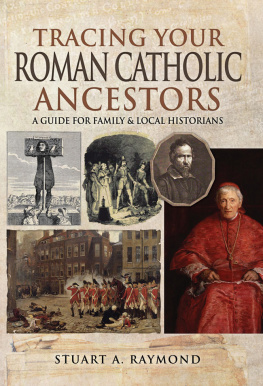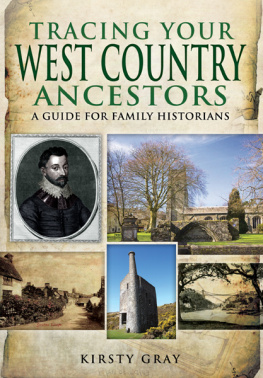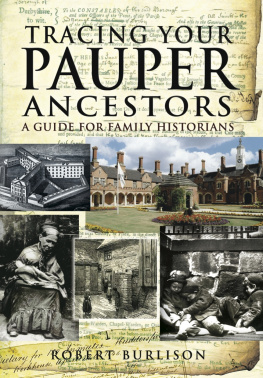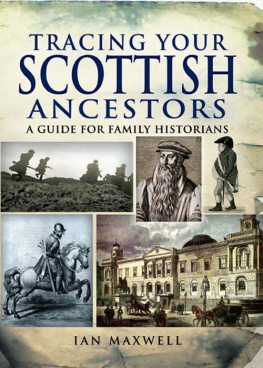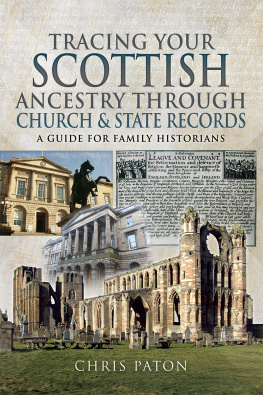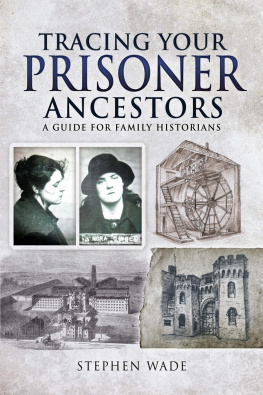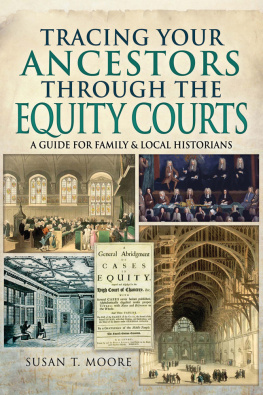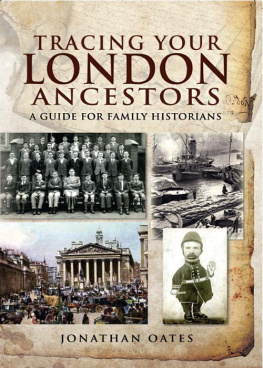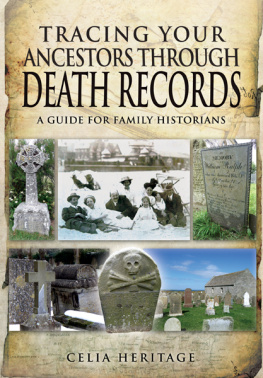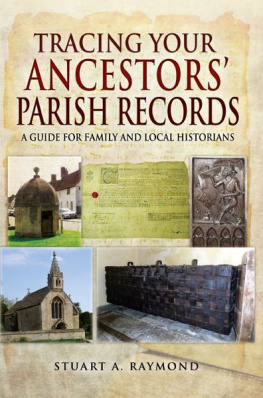FAMILY HISTORY FROM PEN & SWORD
Tracing Secret Service Ancestors
Tracing Your Air Force Ancestors
Tracing Your Ancestors
Tracing Your Ancestors from 1066 to 1837
Tracing Your Ancestors Through Death Records
Tracing Your Ancestors Through Family Photographs
Tracing Your Ancestors Using the Census
Tracing Your Ancestors Childhood
Tracing Your Ancestors Parish Records
Tracing Your Aristocratic Ancestors
Tracing Your Army Ancestors 2-nd Edition
Tracing Your Birmingham Ancestors
Tracing Your Black Country Ancestors
Tracing Your British Indian Ancestors
Tracing Your Canal Ancestors
Tracing Your Channel Islands Ancestors
Tracing Your Coalmining Ancestors
Tracing Your Criminal Ancestors
Tracing Your East Anglian Ancestors
Tracing Your East End Ancestors
Tracing Your Edinburgh Ancestors
Tracing Your First World War Ancestors
Tracing Your Great War Ancestors: The Gallipoli Campaign
Tracing Your Great War Ancestors: The Somme
Tracing Your Great War Ancestors: Ypres
Tra cing Your Huguenot Ancestors
Tracing Your Jewish Ancestors
Tracing Your Labour Movement Ancestors
Tracing Your Lancashire Ancestors
Tracing Your Leeds Ancestors
Tracing Your Legal Ancestors
Tracing Your Liverpool Ancestors
Tracing Your London Ancestors
Tracing Your Medical Ancestors
Tracing Your Merchant Navy Ancestors
Tracing Your Naval Ancestors
Tracing Your Northern Ancestors
Tracing Your Pauper Ancestors
Tracing Your Police Ancestors
Tracing Your Prisoner of War Ancestors: The First World War
Tracing Your Railway Ancestors
Tracing Your Royal Marine Ancestors
Tracing Your Rural Ancestors
Tracing Your Scottish Ancestors
Tracing Your Second World War Ancestors
Tracing Your Servant Ancestors
Tracing Your Service Women Ancestors
Tracing Your Shipbuilding Ancestors
Tracing Your Tank Ancestors
Tracing Your Textile Ancestors
Tracing Your Trade and Craftsmen Ancestors
Tracing Your Welsh Ancestors
Tracing Your West Country Ancestors
Tracing Your Yorkshire Ancestors
First published in Great Britain in 2019
PEN & SWORD FAMILY HISTORY
an imprint of
Pen & Sword Books Ltd
47 Church Street, Barnsley, South Yorkshire, S70 2AS
Copyright Paul Blake, 2019
ISBN 9781526738660
eISBN 9781526738660
Mobi ISBN: 9781526738677
The right of Paul Blake to be identified as Author of the Work has been asserted by him in accordance with the Copyright, Designs and Patents Act 1988.
A CIP catalogue record for this book is available from the British Library.
All rights reserved. No part of this book may be reproduced or transmitted in any form or by any means, electronic or mechanical including photocopying, recording or by any information storage and retrieval system, without permission from the Publisher in writing.
Pen & Sword Books Ltd incorporates the imprints of Pen & Sword Airworld, Archaeology, Atlas, Aviation, Battleground, Discovery, Family History, Fiction, History, Maritime, Military, Military Classics, Politics, Select, Social History, True Crime, Frontline Books, Leo Cooper, Remember When, Seaforth Publishing, The Praetorian Press, Wharncliffe Local History, Wharncliffe Transport, Wharncliffe True Crime and White Owl.
For a complete list of Pen & Sword titles please contact
PEN & SWORD BOOKS LTD
47 Church Street, Barnsley, South Yorkshire, S70 2AS, England
E-mail:
Website: www.pen-and-sword.co.uk
or
PEN & SWORD BOOKS LTD
1950 Lawrence Rd., Havertown, PA 19083, USA
E-mail:
Website: www.penandswordbooks.com
PREFACE
Debt is nothing new; it is not a phenomenon of recent centuries. Debt, leading to insolvency and bankruptcy, was not a rare occurrence in the lives of our ancestors: many, perhaps most, lived on credit. Until relatively recent times, although they may not have committed any criminal offence, debtors and bankrupts were perceived to be evasive at best and fraudulent at worst. Over the centuries, debt and bankruptcy have had an enormous impact on the lives of ordinary individuals and families, whose only crime may have been misfortune.
As Charles Dickenss Mr Micawber famously observed:
Annual income twenty pounds, annual expenditure nineteen pounds nineteen and six, result happiness. Annual income twenty pounds, annual expenditure twenty pounds ought and six, result misery.
Mr Micawber, who appeared in Dickenss eighth novel David Copperfield, is said to have been based on Dickenss own father who, like the character, was incarcerated in a debtors prison.
Regulations relating to bankruptcy appear as part of just about every legal system and are found as far back as 2250 BCE in the Hammurabi Code. In Roman times and in medieval Europe, debtors were liable to have their property seized and handed over to creditors. Ancient laws used a variety of methods for distributing losses among creditors, and satisfaction for the creditor usually came from the debtors own bodily expense. He might be imprisoned, enslaved or killed, or even all three. In England, the Magna Carta Liberatum in 1215 set out rules that a persons land could not be seized if they had chattels or money sufficient to repay their creditors.



